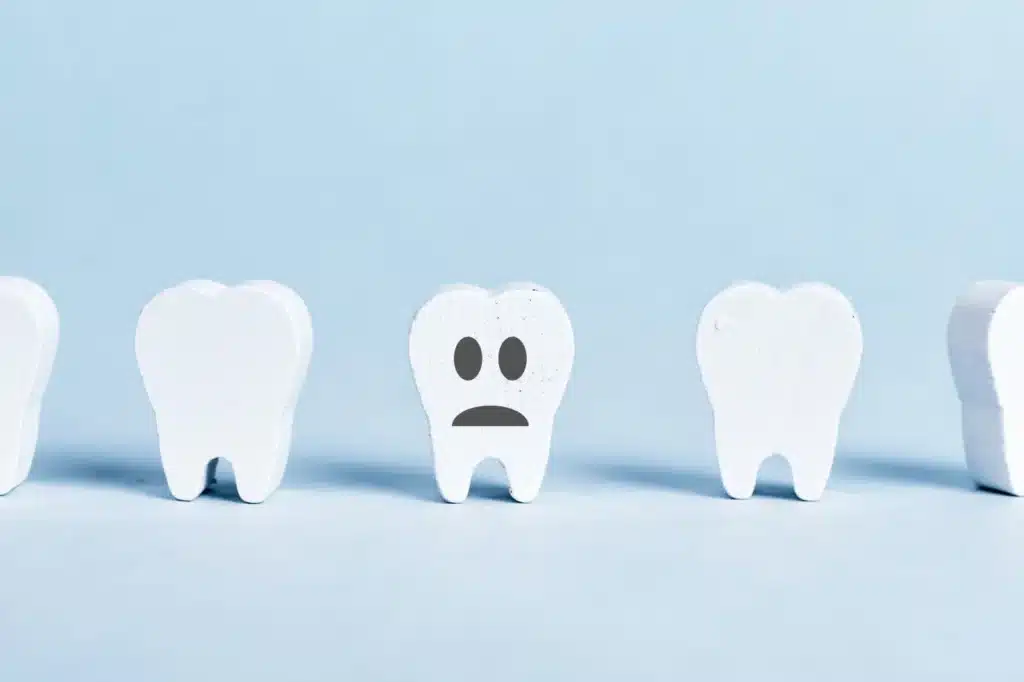Periodontal diseases are often underestimated. They can cause severe damage to your gum and health. Read more to explore the common types of periodontal diseases. Learn how you can protect yourself from such diseases and better your oral health.
Periodontal Disease
Periodontal disease affects the tissues surrounding your teeth, including gums and bones. The prevalence of periodontal diseases is high, impacting millions worldwide. Ignoring these issues can lead to tooth loss and even affect your well-being.
Types
Periodontal disease includes a range of oral health issues. Gingivitis and periodontitis are the most common types. Understanding their nuances is vital for maintaining a healthy smile.
Gingivitis
Gingivitis is the milder form of periodontal disease. Symptoms include redness, swelling, and bleeding gums, especially when brushing or flossing. It’s a result of poor oral hygiene. It causes plaque, a sticky film of bacteria, to accumulate along the gumline.
Risk factors include smoking, diabetes, and certain medications. Whereas, prevention and home care can help. Regular brushing and flossing, along with professional cleanings, can reverse gingivitis.
Periodontitis
Periodontitis is more severe and can lead to tooth loss. It progresses through stages. Starting with gingival pockets forming as the gums pull away from teeth. Complications arise as the infection deepens, including bone loss and gum recession.
Systemic diseases like diabetes can worsen periodontitis. Diagnosis is usually made through clinical examination and X-rays. Professional treatment options range from scaling and root planning to surgical interventions.
Moreover, gingivitis is an early warning sign for potential periodontal issues. While periodontitis demands timely intervention. Maintain your oral health through proper hygiene and regular dental check-ups.
Factors Contributing to Periodontal Diseases
Many factors influence periodontal diseases. Here’s a look at some key contributors:
- Poor Oral Hygiene Habits: Neglecting to brush and floss is a bad oral habit. It causes harmful bacteria to flourish in your mouth. It leads to periodontal diseases. Plaque buildup, if not removed, can escalate into gingivitis and beyond.
- Tobacco Use and Its Effect on Gum Health: Smoking and using tobacco products is also a risk factor. It hampers blood flow to the gums, weakening their ability to fight infections. This makes smokers more susceptible to gum problems.
- Genetics and Susceptibility to Periodontal Diseases: Some individuals may genetically have periodontal diseases. Certain gene variations can make their gums more sensitive to inflammation and infection.
- Systemic Health Conditions: Conditions like diabetes and cardiovascular diseases can cause periodontal diseases. The relationship cause poor gum and systemic health.

Importance
Periodontal disease is not confined to your mouth. It can impact your well-being. Here’s why gum health matters:
Connection Between Oral Health and Systemic Health:
Research reveals a profound link between gum health and systemic conditions. Inflammation from periodontal diseases can worsen conditions like diabetes. It, as a result increases the risk of heart disease.
Impact on Cardiovascular Health:
Gum inflammation may contribute to the development of cardiovascular problems. Bacteria from the mouth can enter the bloodstream. It causes arterial inflammation and increases the risk of heart attacks and strokes.
Periodontal Health during Pregnancy:
Pregnant individuals should pay special attention to their gums. Hormonal changes can make gums more susceptible to inflammation. These issues may even affect the baby’s health.
Diabetes and Its Influence on Gum Health:
Diabetes and gum disease have a bidirectional relationship. Uncontrolled diabetes can worsen gum health. Untreated, periodontal diseases can make it harder to manage diabetes.
Preventive Measures
- Learn the circular brushing technique to remove plaque.
- Floss daily to reach where your toothbrush can’t, preventing periodontal diseases.
- Schedule regular visits for professional cleanings and early detection of periodontal diseases.
- Eat foods rich in vitamins C and D, like citrus fruits and dairy, which support gum tissue.
- Limit sugary snacks that feed harmful bacteria, a critical factor in periodontal diseases.
- Kick tobacco habits, as they contribute to gum problems.
- Manage stress, which can worsen periodontal diseases, and consider relaxation techniques.
Conclusion
Understanding periodontal diseases is key to oral health. Always go for regular dental check-ups and oral hygiene. Don’t underestimate the link between gum health and well-being. Contact Dentalsway for more information and to achieve a healthy smile.


